Uganda

STOP Spillover was initiated in Uganda in 2021 and worked in Bundibugyo district in the western region of the country. Activities focused on the bat-human interface to improve understanding of the risk factors for viral zoonotic disease spillover and to develop interventions to reduce human exposures to bats. Bundibugyo district borders the Democratic Republic of the Congo and is known for having significant bat populations and a history of viral disease outbreaks, including Bundibugyo virus disease caused by Bundibugyo ebolavirus in 2007. The Uganda team developed a bat monitoring program that can be used as an early warning system to reduce the number of bats and potential risk threats. Project activities in Uganda concluded on June 30, 2023.
The resources below represent important work done by the Uganda team, OH-DReaM Working Groups, and a wide range of stakeholders and partners at the bat-human interface in the sub counties of Burondo, Harugale, and Ntandi in Bundibugyo district (see map).
From its inception, STOP Spillover worked with stakeholders in Bundibugyo district to gain a better understanding of the historical context of bat-human interactions and bat uses in the community. A range of participatory epidemiology tools, such as focus group discussions, key informant interviews, direct observations, transect walks, and bat roost mapping, were employed. The uses of bats, beliefs about bats, and the perceived values of bats varied across the diverse ethnic communities in Bundibugyo district. STOP Spillover’s work has better documented and defined the diverse and ongoing bat-human interactions and risky interfaces for viral zoonotic spillover, and initiated monitoring and risk reduction activities that can continue in partnership with communities and other stakeholders.
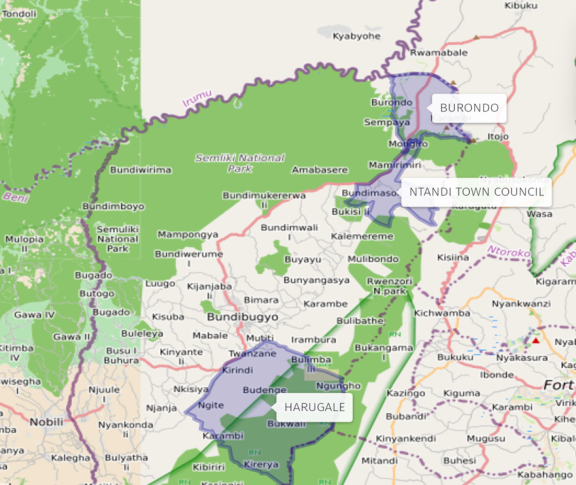
Key Activities in STOP Spillover's Work in Uganda
- 1. Initial mapping of communities
This activity aimed to conduct a household survey and focus group discussions to gain a deeper understanding of the socio-cultural, economic, and behavioral and gender-based risk factors in the communities that could potentially lead to zoonotic disease spillover. Due to the early closure of the activity, we were only able to survey 300 households and hold 24 focus group discussions.
- 2. Training in participatory epidemiology and related applications
During this activity, participants acquired the skills to conduct participatory surveillance using participatory epidemiology methods through guided practice at the bat-human interface in Bundibugyo district. The objectives of the training were to 1) apply the concepts of participatory epidemiology/surveillance to understand the ecology and risks associated with bats in the three communities, 2) use direct observation as a tool to learn from communities, including observation during semi-structured interviews, transect walks, and participation in community activities, 3) demonstrate the use of participatory exercises, including ranking, scoring, and visualization tools, and 4) analyze and report the results of participatory surveillance to guide development of standard operating procedures for bat monitoring. Participants met each day of the training and presented the results of the day’s work. Over the course of the 10 days, they developed and tested a methodology for the surveillance activity. At the end of the training, participants presented their initial findings and the agreed-upon methodology for surveillance.
- 3. Cataloging of community uses of bats and bat products
- Image
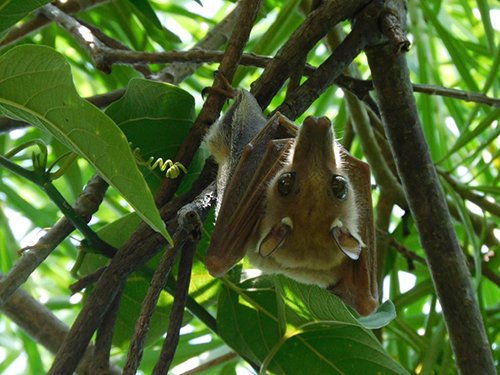
Bat in Bundibugyo district, Uganda The catalog documents various bat-human interactions, myths, and the perceived value of bats in Bundibugyo, including farming, bat hunting, fetching water, and the use of bats in traditional medicine, agriculture, and income generation.
- 4. Risk reduction strategy and plan, intervention selection process, and procedures for implementation and evaluation
This report details work done with communities in Bundibugyo considered at high risk for viral spillover, beginning with identification of risk factors that increase the likelihood of exposure, which made it possible to prioritize several possible interventions using defined criteria. The report focuses on 1) engaging communities through a social behavior (SBC) strategy to keep bats out of households and identifying and promoting safe practices, and 2) promoting the protection and safety of household and community water and food resources.
- 5. Review of the Living Safely with Bats community discussion guide
The Living Safely with Bats picture book was developed under the USAID-funded PREDICT project and piloted in Sierra Leone in 2018 as a community discussion guide following the discovery of Bombali virus, a new ebolavirus in bats in the country. The review aimed to build on USAID’s investment in the resource by assessing the suitability and usability of Living Safely with Bats in Bundibugyo district to inform adaptation of the resource.
- 6. Bat sampling plan and monitoring framework for a community-based bat monitoring program
The bat sampling plan provides a detailed description of the procedures used to trap and collect specimens from bats in Bundibugyo district. The data are used to improve understanding of spillover risk to support the development and implementation of effective interventions to reduce human exposure to bats. The purpose of the community-based bat monitoring program was to build the capacity of community members to monitor key human-bat interaction interfaces in both space and time. For instance, through the monitoring program, bat roosts, feeding sites, and bat-human interfaces were identified that could pose risks for zoonotic spillover events, which enabled the collection of information on the seasonality of bat roosting behavior, bat population composition, and changes in and risks of zoonotic disease spillover to humans.
- 7. Phase 1 evaluation report on the development of the bat-monitoring program
This report describes the key activities in the development of the community-based program for monitoring bat-human interactions in Bundibugyo district. The objectives of the monitoring program were to 1) carry out an infrastructure community mapping of buildings, roads, and points of interest related to public health in Bundibugyo, 2) use participatory epidemiology tools to establish an ecological baseline of bats and bat-human interactions in the district, 3) establish standard operating procedures and data collection tools for bat monitoring agents to use during the data capture process, 4) train community bat monitoring agents in basic bat ecology and the monitoring of bat-human interactions, and 5) commission the participatory bat-human interaction monitoring program.
- 8. Final stakeholder report
This document summarizes highlights of the STOP Spillover Uganda team’s final stakeholder meeting with partners in Bundibugyo district in May 2023.

The resources below include visuals, such as illustrations of bat-human interfaces and updated maps of local infrastructure, other critical reference points, and potential and observed bat-human interfaces.
Read About STOP Spillover in Uganda
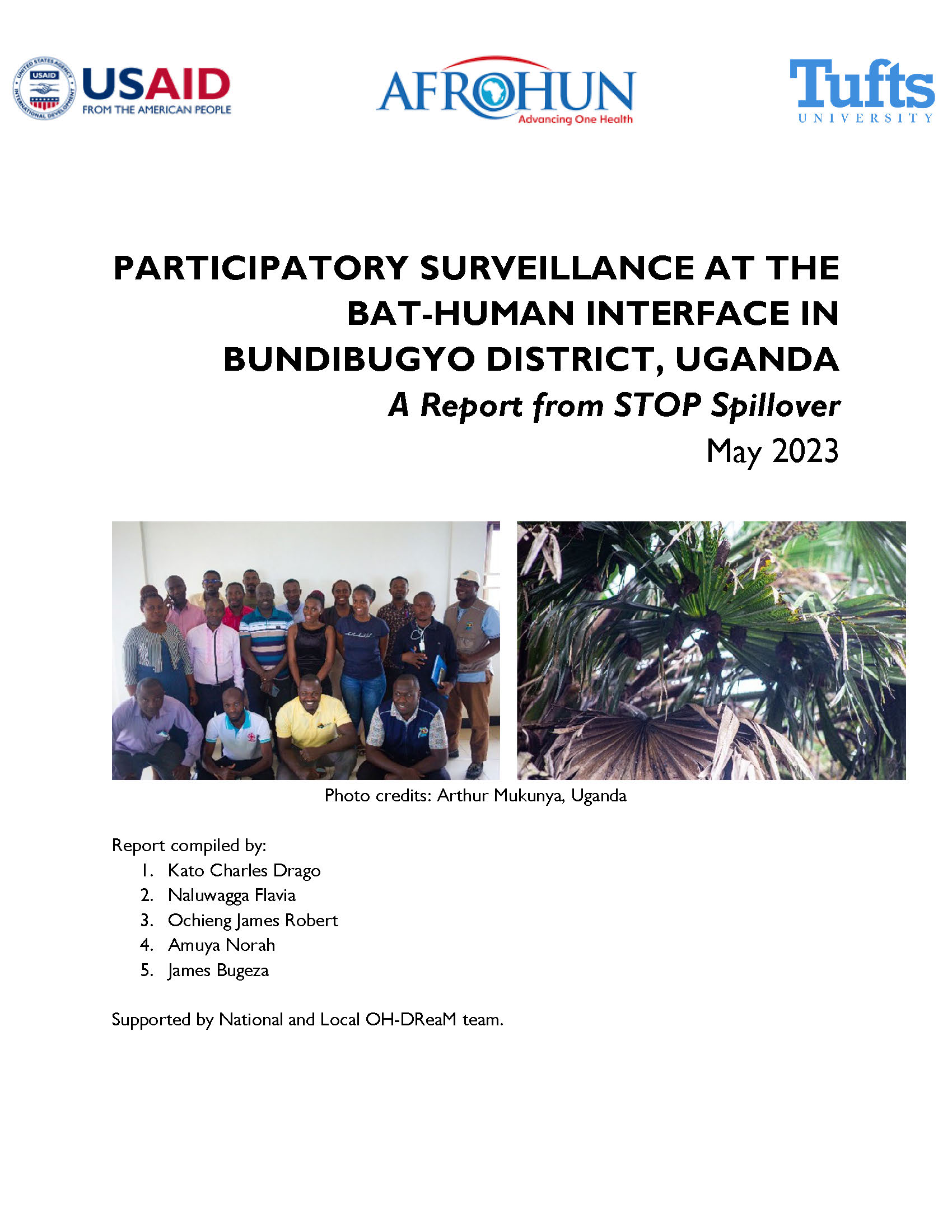
Participatory Surveillance at the Bat-Human Interface in Bundibugyo District, Uganda
This report summarizes the project’s participatory surveillance approach to investigate bat host ecology (based on community knowledge) and human behavioral risk factors associated with human-bat interaction to inform the development of the community-based bat-human interface monitoring program.
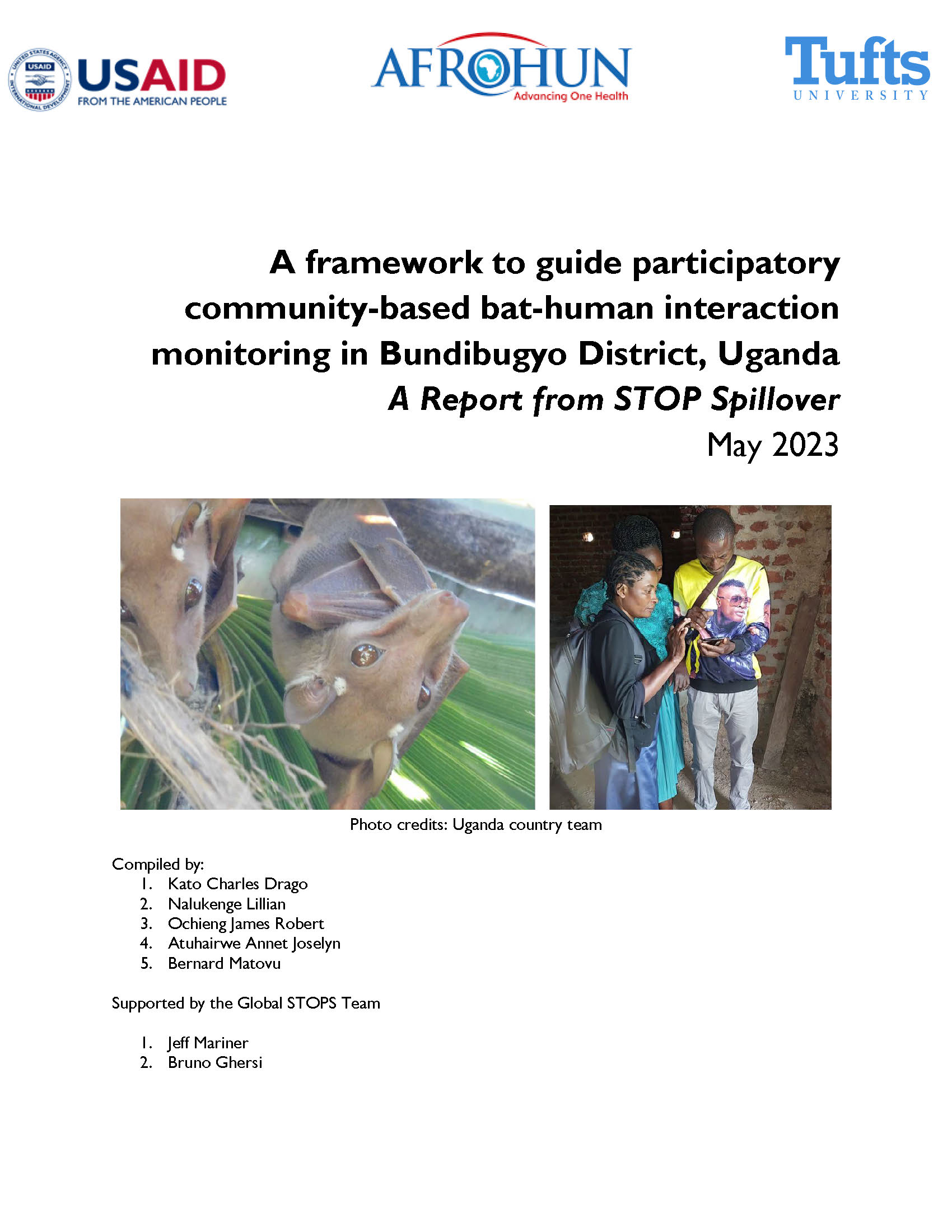
This document describes the activities of the bat-human interaction monitoring program in Bundibugyo district, the data collected and indicators monitored, and the plan for data processing, analysis, and reporting.
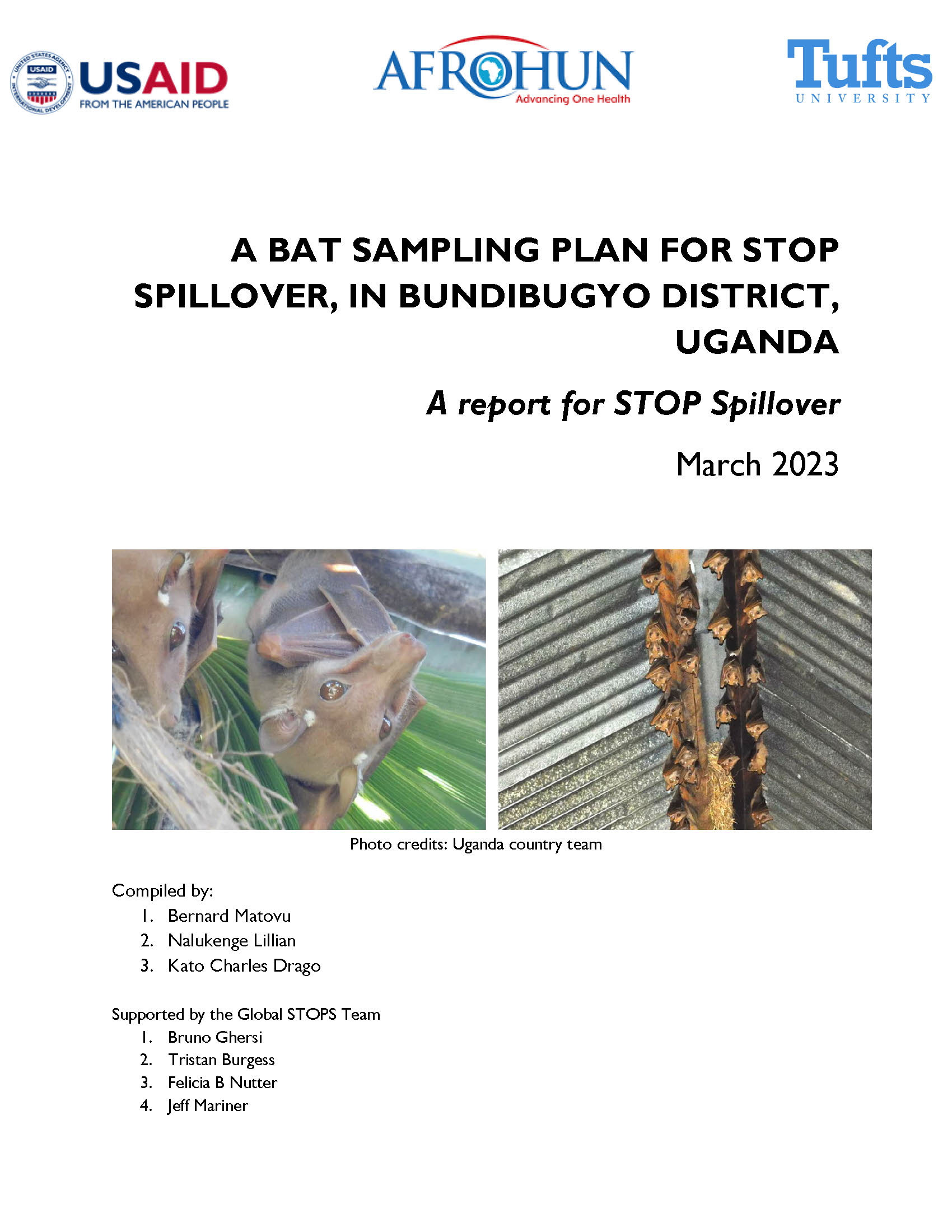
Bat Sampling Plan for STOP Spillover in Bundibugyo District, Uganda
This document describes the procedures used in Bundibugyo district to trap bats at the bat-human interface and collect specimens from trapped bats.
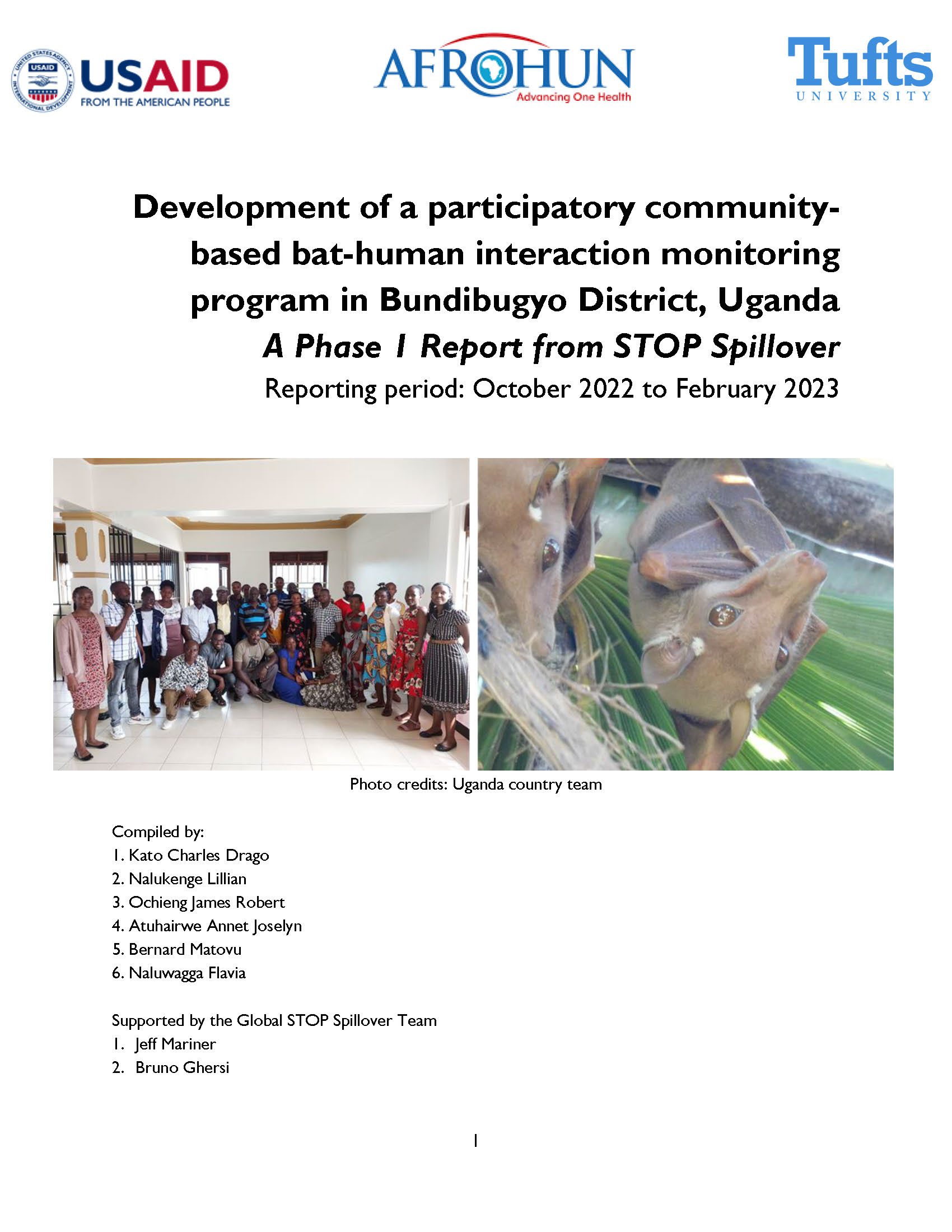
This report summarizes Phase I of the participatory community-based bat-human interaction monitoring program in Bundibugyo District, Uganda from October 2022 to February 2023.
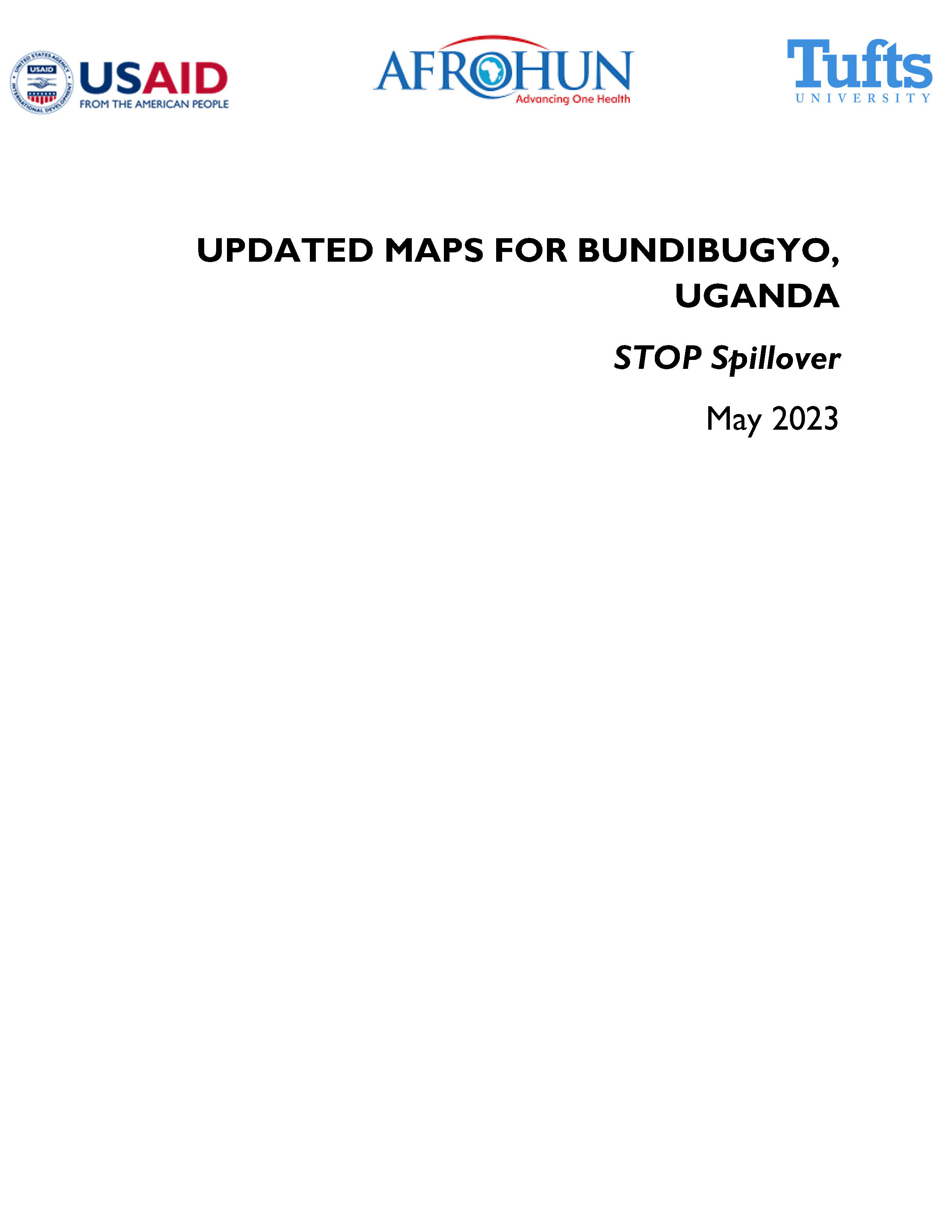
Updated Maps for Bundibugyo District, Uganda
These documents map all major human infrastructure interactions and bat nesting areas in and around bat-human interaction sites in Bundibugyo district.
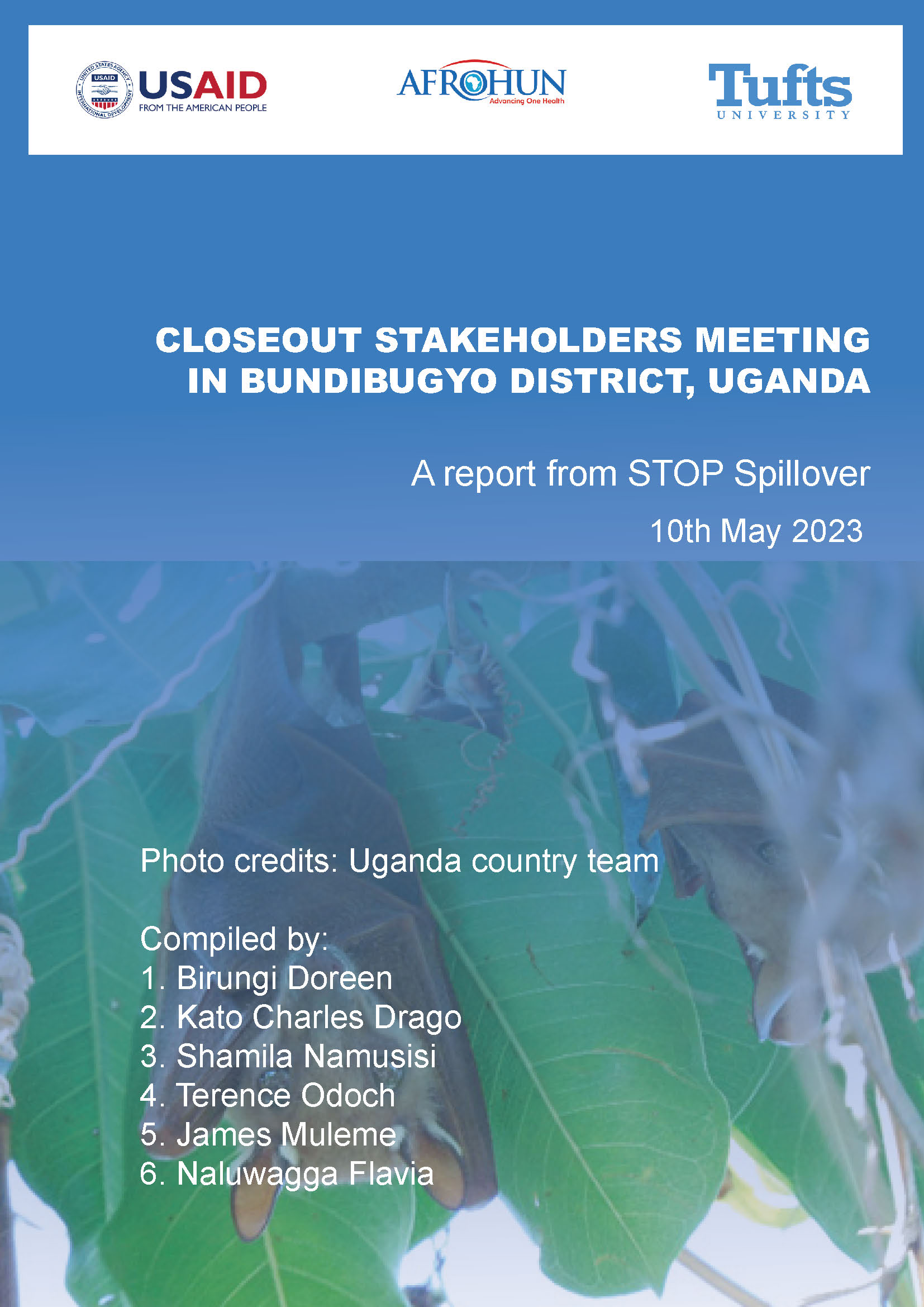
Closeout Stakeholders’ Meeting in Bundibugyo District, Uganda
This document summarizes highlights of the STOP Spillover Uganda team’s final stakeholder meeting with partners in Bundibugyo district in May 2023.
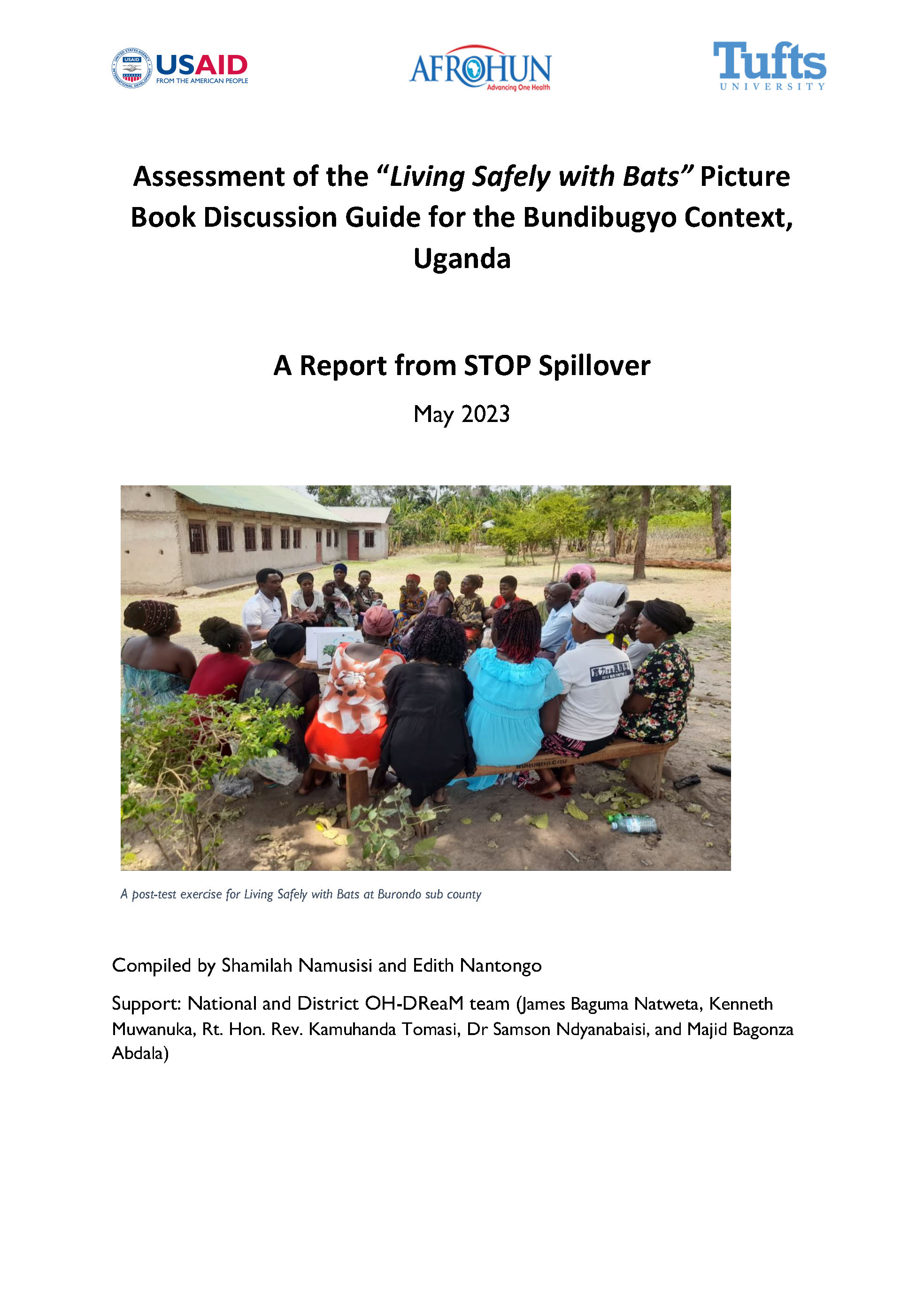
This document summarizes the results of an exercise that assessed the usability and appropriateness of the Living Safely with Bats community discussion guide for the Bundibugyo district.
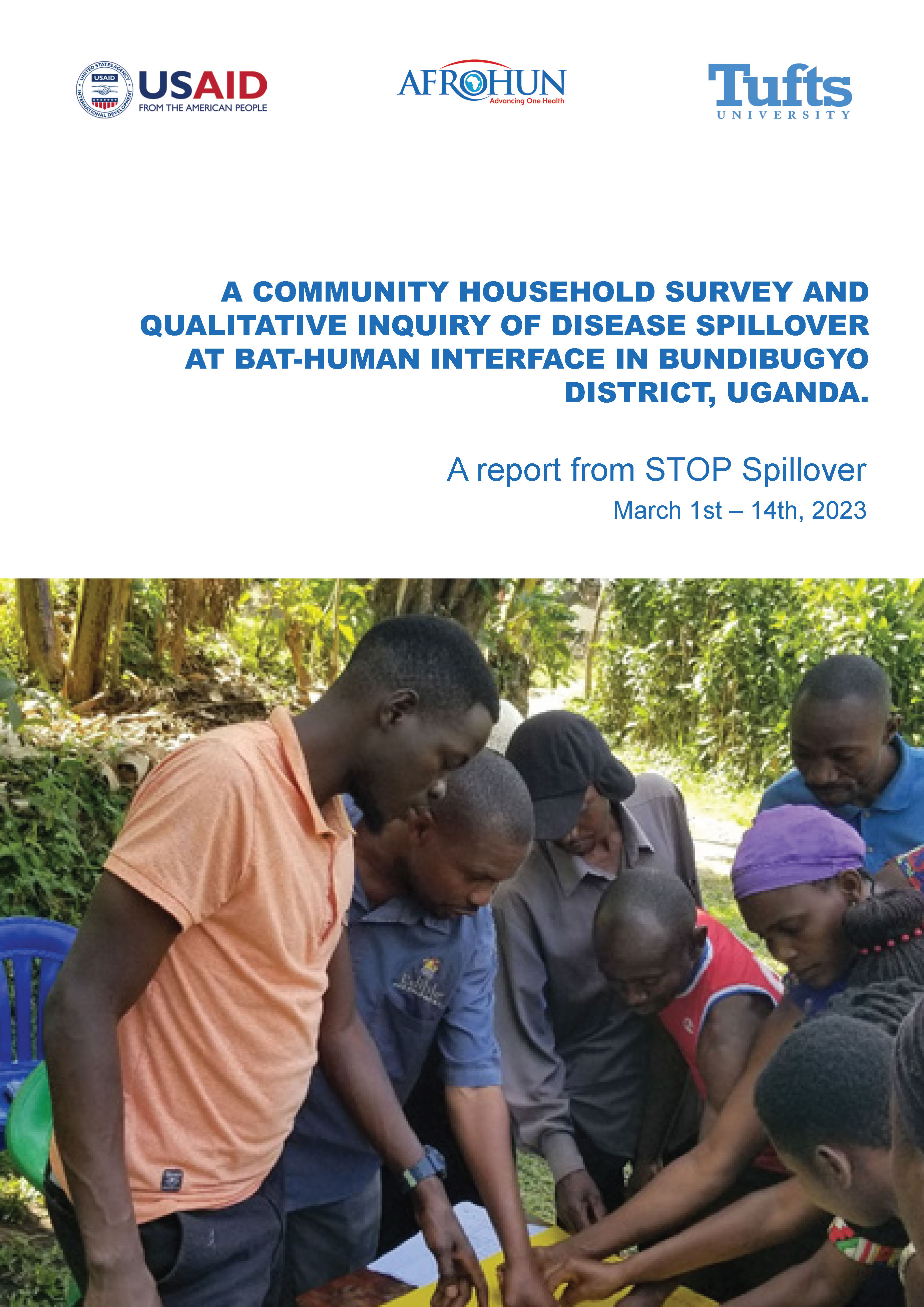
This report summarizes the results of community surveys and focus group discussions conducted in Bundibugyo district that explored the behavioral, socio-cultural, gender-specific, and economic risk factors associated with bat-human interaction in the study areas in the district.
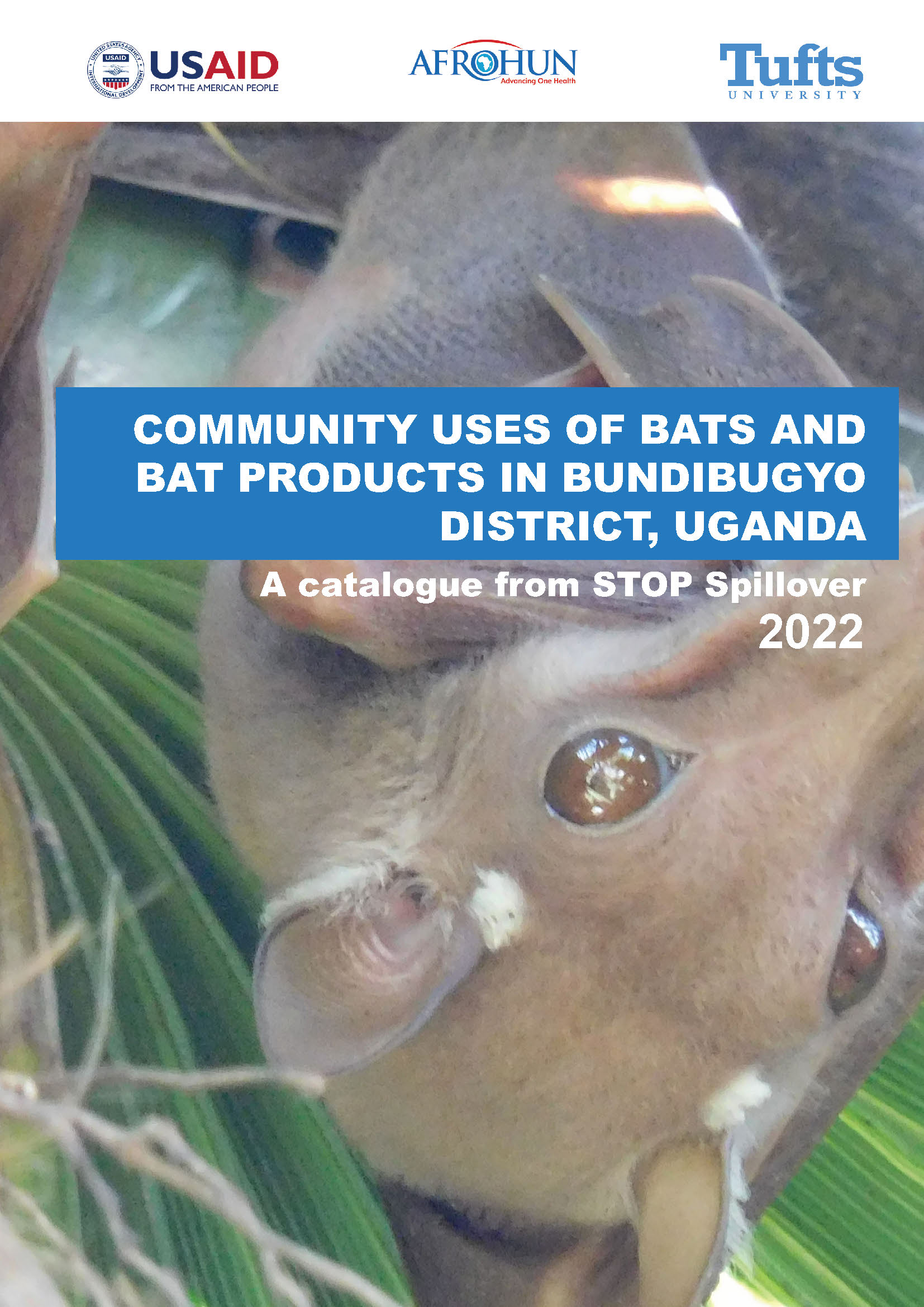
This resource documents bat-human interactions, myths, and the perceived value of bats in Bundibugyo district, including farming, bat hunting, fetching water, and the use of bats in traditional medicine, agriculture, and income generation.
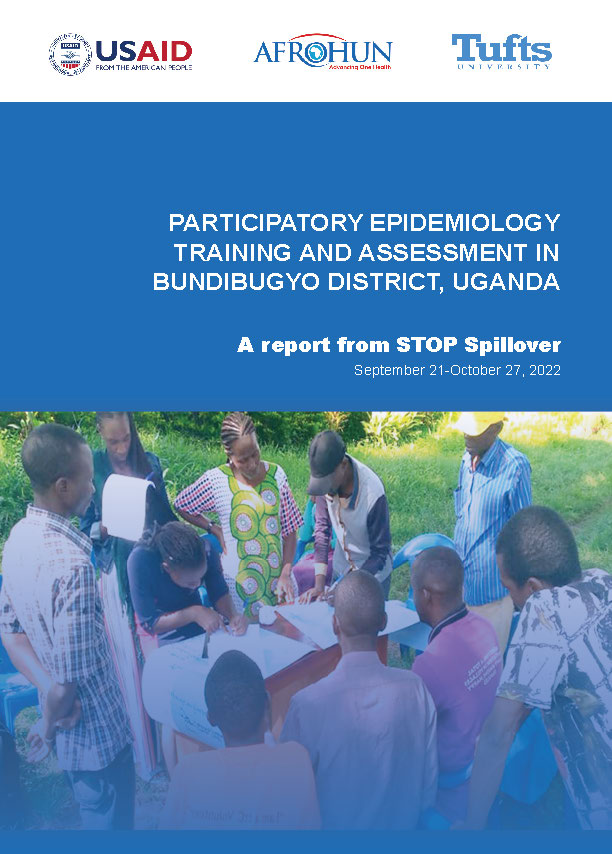
Participatory Epidemiology Training and Assessment in Bundibugyo District, Uganda
This document summarizes the results of a training to equip community members with knowledge and skills in participatory epidemiology and an assessment to better understand the social, behavioral, cultural, and traditional practices that increase human-bat interactions and the risks of spillover.
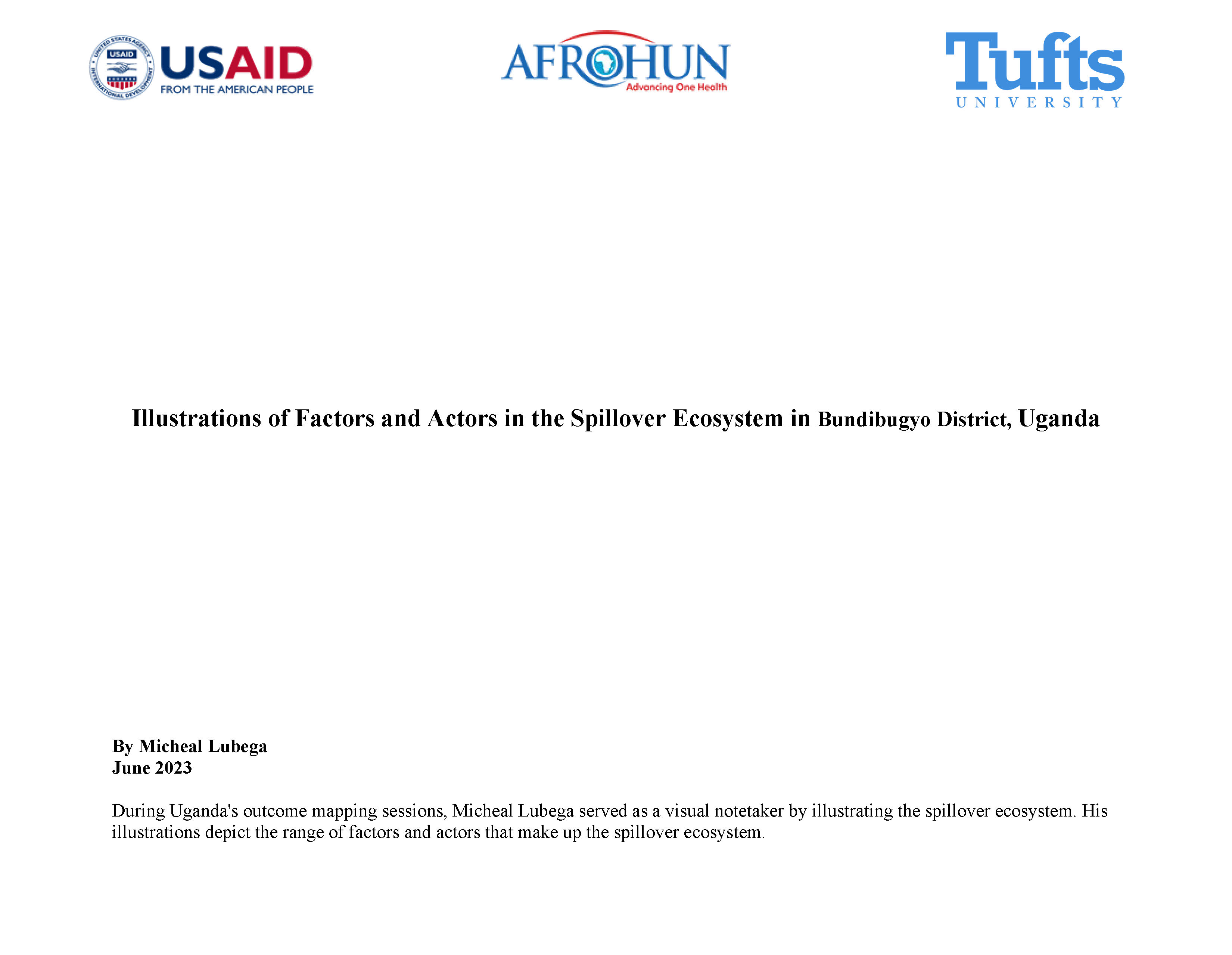
Illustrations of Factors and Actors in the Spillover Ecosystem in Bundibugyo District, Uganda
These illustrations were created during Uganda's outcome mapping sessions, when Micheal Lubega served as a visual notetaker by illustrating the spillover ecosystem. His illustrations depict the range of factors and actors that make up the spillover ecosystem.
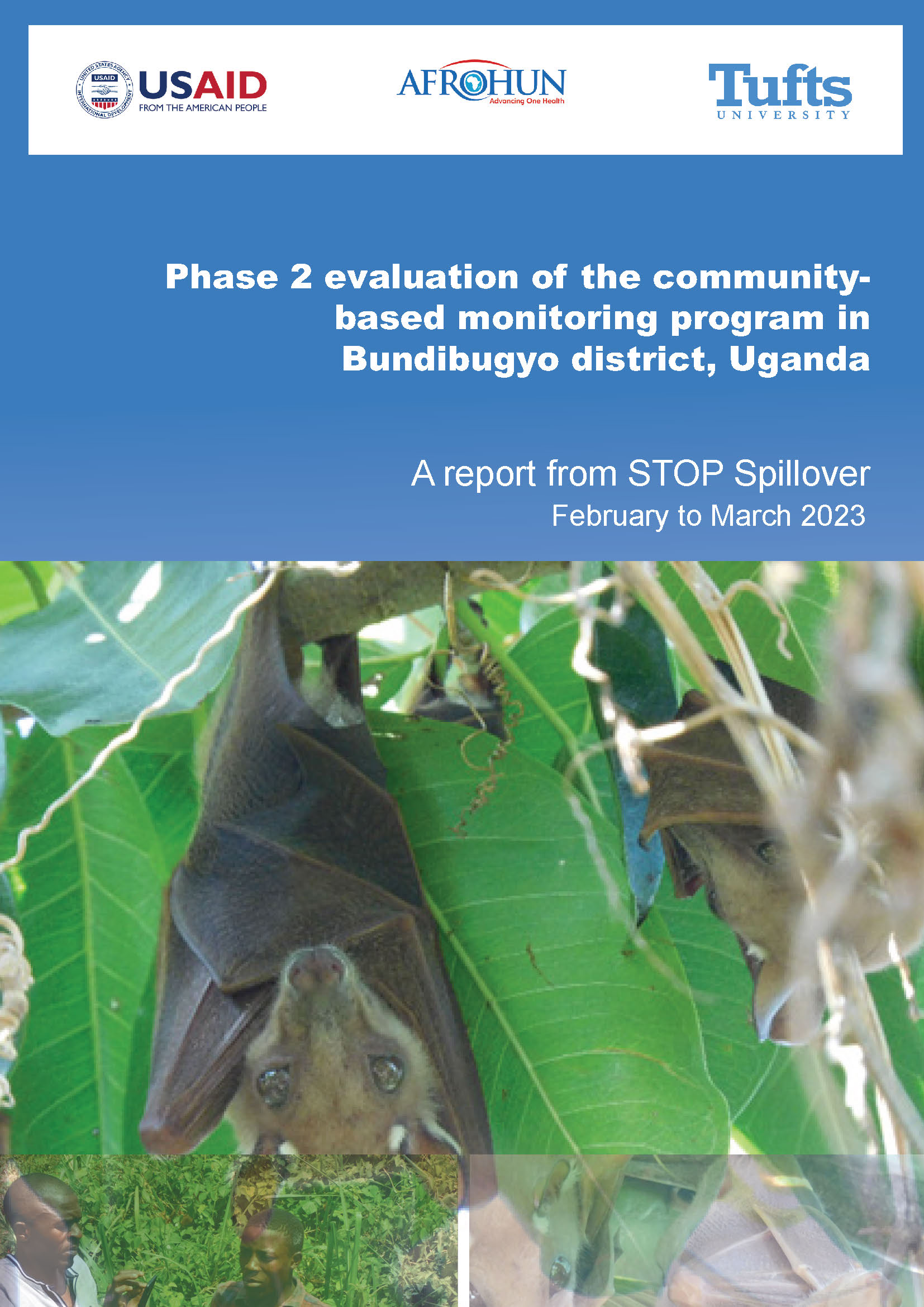
Phase 2 Evaluation of the Community-based Bat Monitoring Program in Bundibugyo District, Uganda
This report presents the community bat-monitoring approach and the results obtained from the two-month bat-human interaction monitoring period in Bundibugyo district.